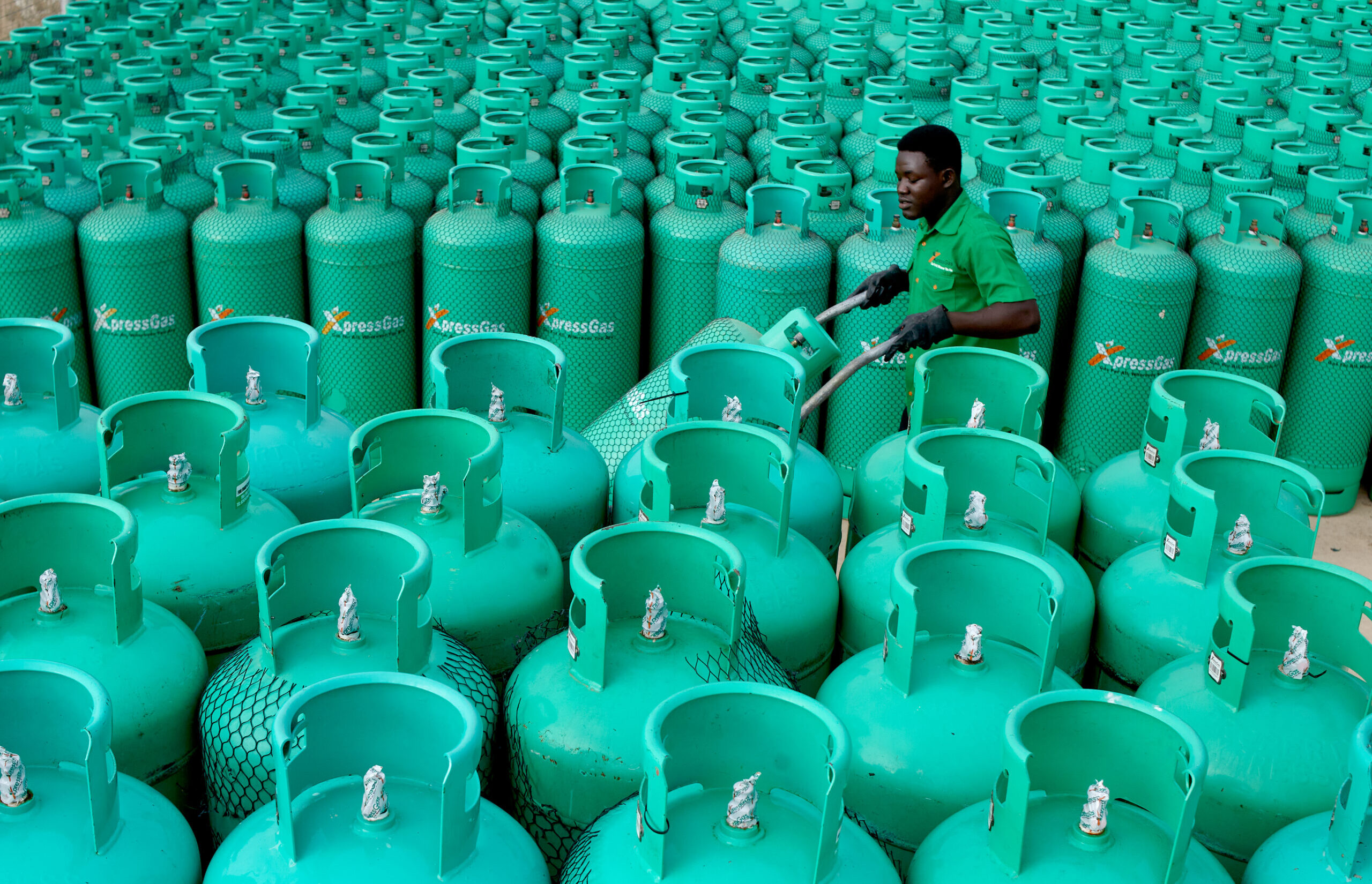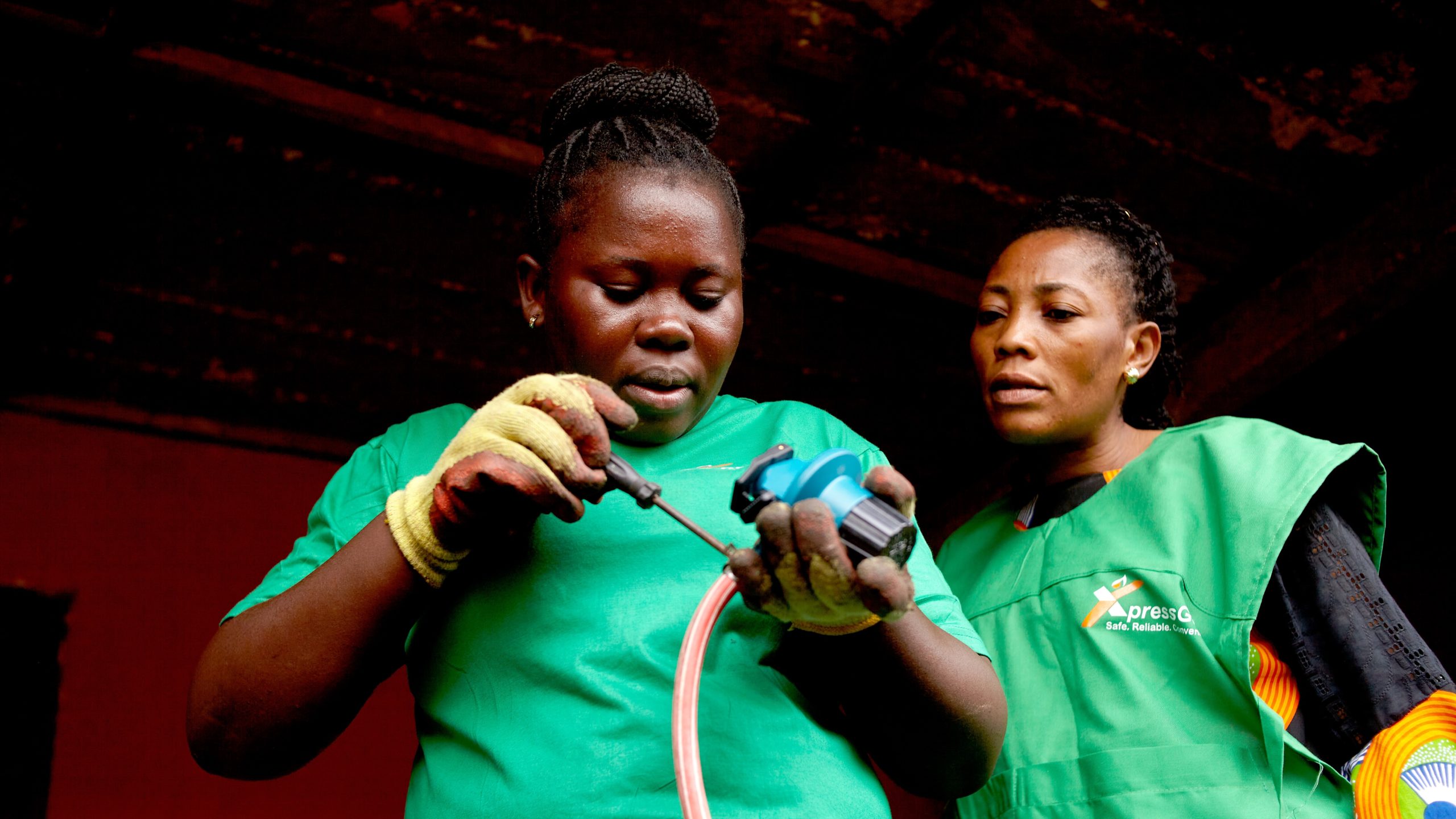XpressGas: LPG for All Ghanaians
Founded in 2010, XpressGas Ghana Limited (XpressGas) provides liquefied petroleum gas (LPG) to households, institutions, and businesses. A Ghanaian-owned company, XpressGas aims to make LPG available, accessible, and affordable, and thus a better alternative to the solid fuel that 75 percent of Ghanaians rely on. In 2021, XpressGas successfully raised USD $6 million in equity and debt from the impact investing group Investisseurs & Partenaires and the Belgian Investment Company for Developing Countries to increase LPG penetration and access.
Kofi Nketsia-Tabiri, Chief Innovations Officer of XpressGas, spoke with the Clean Cooking Alliance (CCA) about the company’s services and aspirations to transform the clean cooking and LPG market in Ghana.
This interview is part of a series of conversations CCA is having with business leaders across the clean cooking sector.

Clean Cooking Alliance (CCA): Can you describe XpressGas’ products and services?
Kofi Nketsia-Tabiri (Nketsia-Tabiri): XpressGas primarily sells, markets, and distributes cooking gas (LPG), stoves, and various accessories like regulators, hoses, and cylinders. We are the first and leading company in Ghana to deploy and promote branded cylinders, which we manage and maintain. Our brand is a guarantee to customers of receiving high-quality gas cylinders while observing all safety protocols.
CCA: How does XpressGas distribute LPG throughout Ghana?
Nketsia-Tabiri: XpressGas distributes LPG through a network of refilling stations (primarily for vehicles) and franchised cylinder vendors targeting households and commercial customers. Our cylinder vendors are typically located in densely populated, under-served communities. XpressGas also provides last-mile distribution services for LPG consumers. In total, XpressGas has a network of 52 refilling stations, 62,350 branded cylinders, and 18 cylinder delivery vehicles. Our goal is to have over 200,000 cylinders under management and in circulation by the close of 2023. Encouragingly, we have seen a significant increase in new sign-ups since making the cylinders and stoves more accessible and available.
CCA: How important is the LPG sector to the clean cooking market in Ghana?
Nketsia-Tabiri: In Ghana, LPG is at the top of the energy ladder that includes more polluting fuels such as firewood, charcoal, and kerosene. It’s an aspirational product currently used primarily by middle- and high-income earners. Unfortunately, some communities must still travel hundreds of kilometers just to access LPG, which is something we’re trying to change. Overall, LPG is a very popular cooking fuel, but availability and accessibility are the main barriers to use.
CCA: What is XpressGas’ role in LPG industry in Ghana?
Nketsia-Tabiri: For the past 21 years, I’ve spent time within various communities looking at cooking practices and asking people, “Are you aware of or interested in better fuels?” The feedback has always been, “It’s aspirational, but I can’t afford it.” I detest the perception that LPG is only for the wealthy. XpressGas wants to transform the entire LPG industry in Ghana and make gas available to everyone since it is convenient and healthier for cooking.

CCA: What are the defining characteristics of XpressGas’ customer base?
Nketsia-Tabiri: We target two key customer segments: people who can afford to purchase LPG infrastructure and people who cannot. For those who can purchase a cylinder, we sell them cooking gas. For those who cannot afford the upfront cost of the most basic LPG infrastructure, which costs about US $35, we lend them cylinders to use the gas. If people have equipment like cylinders or hoses that might be outdated and present a safety risk, we recall their used infrastructure and provide them with new, safer equipment. We serve residential users, street food vendors, and commercial and industrial kitchens, allowing us to subsidize each of the various business units that we work with.
CCA: How does XpressGas target different consumer segments?
Nketsia-Tabiri: First, through our lease model, the customer doesn’t necessarily have to pay the full upfront cost for the infrastructure. Second, our product is affordable. We created a smaller canister in addition to our medium canister so that customers can more easily pay for gas up front, and we’re the only ones distributing them. Two canister sizes enable customers to pay for only as much as they need. Third, we believe customers should not have to travel long distances to access our product. We are trying to expand to each of the 200+ districts in Ghana to have a vendor and storage infrastructure to serve the community around them.
CCA: How is XpressGas tackling challenges from inflation and high fuel prices?
Nketsia-Tabiri: Soaring energy prices have been a challenge for the industry from the last quarter of 2021 to today. Our share size enables us to have a competitive edge when negotiating prices from our suppliers, and our extensive storage helps us stabilize prices. We also provide credit to customers so they can pay for the gas in installments.

CCA: Where do you see XpressGas in the next 5 to 10 years, as well as the clean cooking sector in Ghana and West Africa?
Nketsia-Tabiri: The government of Ghana aspires for 50 percent of households to use LPG by 2030, so our goal is to demonstrate that LPG can be the most viable cooking proposition to people in Ghana and West Africa. XpressGas’ focus is to target the 35 percent of households in Ghana that are totally dependent on charcoal for cooking and, over the next 5 years, to deploy at least 1 million cylinders. For now, we are not concerned with expanding outside of Ghana because we first want to optimize the potential and opportunity within the country.
CCA: Is Xpress Gas exploring any climate finance opportunities?
Nketsia-Tabiri: Over the past year, we have been building and expanding the infrastructure and logistics necessary for us to deploy cooking gas to all regions and districts in Ghana. We will be exploring climate finance opportunities in 2023 to enable us to reach prospective consumers that are in the bottom of the pyramid.
CCA: What advice do you have for other clean cooking companies looking to scale?
Nketsia-Tabiri: Know your market and your consumer. Don’t be too worried about the iterative process of testing a particular service or product. Be very frugal, and make sure you get it right before you scale. Take time, learn lessons, and then build upon those experiences. Once you get it right, scaling up is not a challenge.
